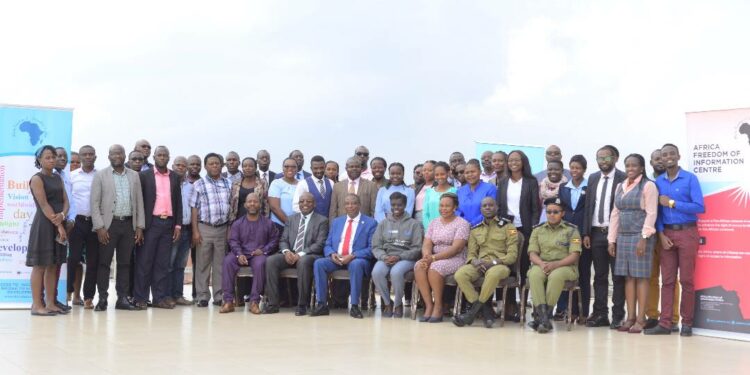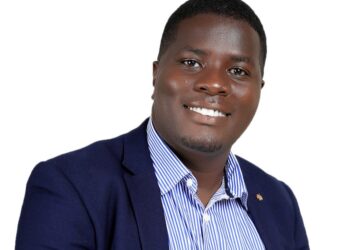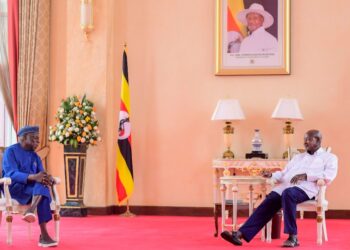Africa Freedom of Information Centre (AFIC) in collaboration with key allies, chiefly United Nations Educational Scientific and Cultural Organization (UNESCO) have reaffirmed their shared commitment to actualize free and fair elections in Uganda.
Cognizant that credible and transparent elections ocassioned by strengthening electoral processes and systems is the cornerstone of political stability and a fundamental backbone of democracy, AFIC teamed up with key allies to advocate for the respect of the right to free speech and access to factual information, through trainings targeting electoral stakeholders in Uganda.
One such training held at SKYZ Hotel Naguru, Kampala from July 11th to 13th was largely embraced by several electoral stakeholder groups, including high-end personnel from Uganda Electoral Commission (EC), Uganda Police Force, representatives of Political Parties, the media, Civil Society Organizations (CSOs) and the Judiciary, whose presence was vital in deliberating issues at hand.
It was a training on freedom of expression, access to information for the promotion of free and fair elections in Uganda, which was graced by Mr. Kamugisha Richard Baabo, the EC Director field operations. He represented the Chairperson for the EC of Uganda Justice Simon Byabakama.
While delivering his closing remarks, Mr. Kamugisha reiterated the firm commitment of EC to conduct free, fair elections and referenda, which, in his view is an effective antidote to pre, during and post election violence, reminiscent of the dark days of the pre-NRM era.
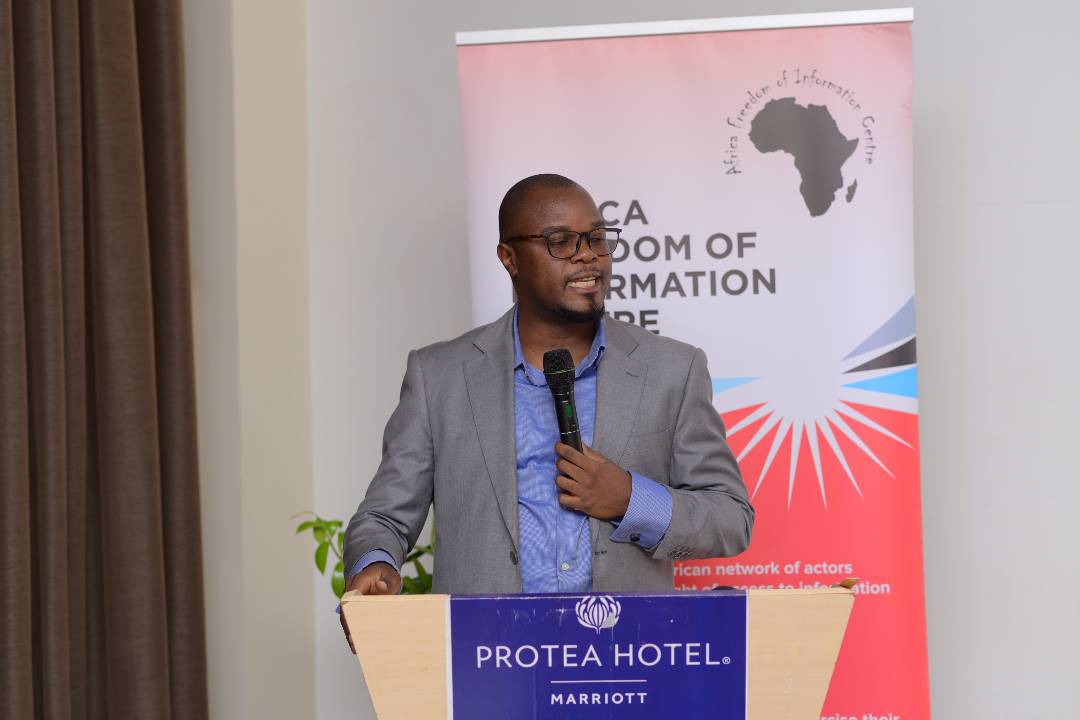
“The commission has put in place strategies to enhance access to information and freedom of expression for delivery of free and credible elections through enhanced voter education and publicity, enhanced stakeholder engagement and the use of media platforms,” Kamugisha asserted.
He however castigated non patriotic citizens who are influenced by malicious actors to try to cause political myhem under the pretext of unfair elections, which is a potent threat to peaceful coexistence of divergent political views.
“Elections have been identified, especially in Africa as one of the avenues that citizens are taking advantage of, to vent out their anger or the issues that concern them,” he added.
Also while making his remarks, Mr. Gilbert Sendugwa, the Executive Director AFIC implored all electoral stakeholders in Uganda to visit various offices that belong to the EC and Police, to obtain factual information regarding elections, which is vital in warding off threats of violence perpetuated by misinformation, disinformation and mal information.
“………they also invited us, all of us to visit their various offices and see first of all are they there or not, the results, but the more importantly, the preparations that are already starting to take place to ensure that there is a credible, transparent and legitimate process when it comes to 2026. So let us use this opportunity therefore to respond to that invitation and clear any doubts,” Sendugwa said.
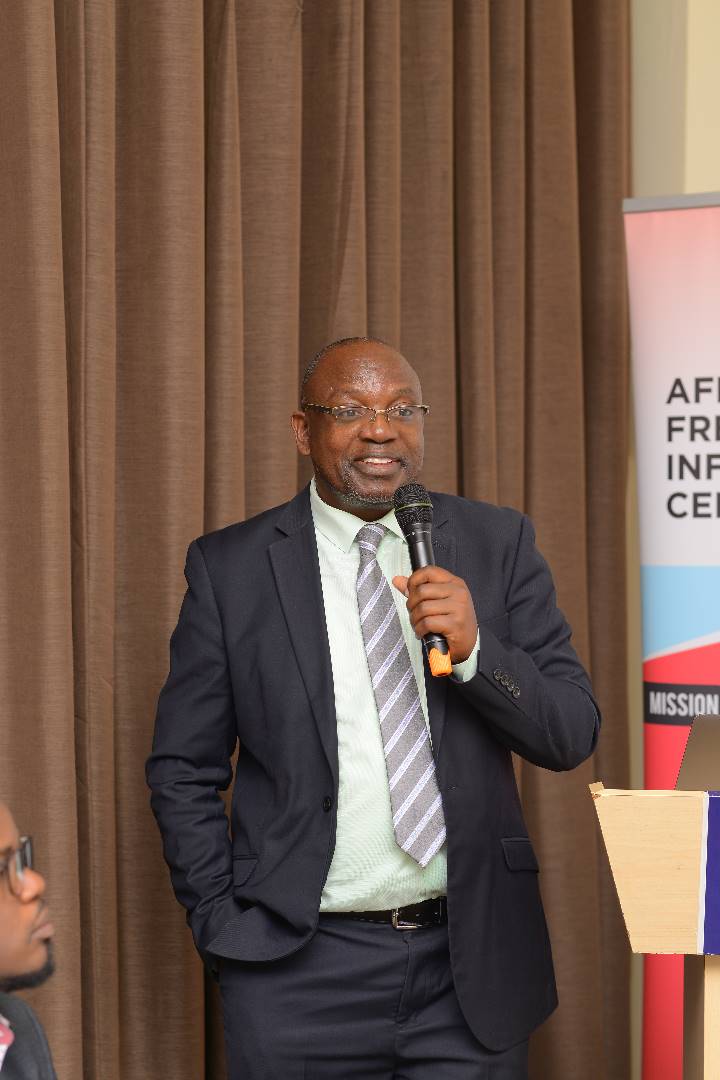
“Misinformation and disinformation during elections can lead to violence. Access to accurate information is very critical in preventing election violence,” he added.
It should be noted that the three-day training rotated around aspects like how to ethically use Artificial Intelligence (AI) to actualize efficiency and effectiveness in everyday digital operations, how to thwart cyber threats, the aspect of access to information and freedom of expression, with a major focus on how to leverage all these to actualize transparency during the conduct of elections.
The auspicious workshop involved expert trainers imparting crucial knowledge about the above aspects to the attendees. These experts included: Dr. Michael Kiberu Agenda, the CEO Bit2Big, Dr. Adolf Mbaine and Dr. Sarah Namusoga, both senior lecturers of Journalism and Communication at Makerere University.
It was tailored around assessing the AFIC report on the 2020-2021 Presidential and Parliamentary run-offs, learning from them to increase access to factual information on elections, on top of minimizing acts of pre, during and post election violence. It was also aimed at suggesting ways of building voter confidence in the EC of Uganda, whose reputation has for long been soaked in “political mud”.
While making his presentation, Dr. Mbaine sounded an alarm and expressed amazement with the way state actors like police and the army are muzzling free speech and access to information, which according to him threatens to drift the country into yet another conflict.
“Now as you know, elections sometime back in this country brought trouble, brought war in this country, So that really worries me because a country which cannot conduct fair, credible, free and fair elections is a country in trouble,” Dr. Mbaine warned.
“In fact, of course, it is about the general state of our of the management of our economy, corruption, unemployment, abuse of public resources, and so on and so forth,” he added.
Worth noting, deliberations on the second day of the training took a dramatic twist, characterized by accusations and counter accusations, in which personnel from the civil society accused the EC staff of puppetism to authorities and incompetence, with the latter hitting back.
For instance: Mr. Samuel Kiyingi, the EC head of political parties, decried the growing voter apathy, yet according to him, citizens who boycott voting are in most cases the ones at the forefront of complaining about unfair elections. He reiterated that citizens who are intentional on determining who to occupy political offices must take part in the voting process.
“Many people don’t want to participate in elections, they say, a certain political party has been in power for a long time. But if you don’t participate, who will participate?….. As I conclude, participate, participate and lastly, participate. The elections are not for me, they are for all of us,” Mr. Kiyingi implored citzens.
This assertion provoked frenzied criticism from Mr. Eddy Frederick Kasajja, the Deputy General Secretary of Justice Forum (JEEMA), who supplied a neat link between extremely low participation of citizens in Uganda’s electoral processes to lack of trust in the system, due to acts of violence and muzzling of people’s freedoms allegedly by the Police and the EC.
“Participate, participate in what? Hasn’t police beaten us, haven’t you undermined us…….voter apathy will continue, even in 2026, Mr. Kiyingi my good friend, in charge of political parties, you have a lot of ground work to entice Ugandans to vote, because they know. They know what they go through,” Kasajja charged.
Like any other African country, Uganda, given the fast growing internet has witnessed the spread of disinformation and a lot of hate speech during elections, leading to alot of human rights violations against different electoral actors.
Trainings like this by AFIC are therefore intended to prevent any future mutations into civil strife during elections period.
Do you have a story in your community or an opinion to share with us: Email us at editorial@watchdoguganda.com


